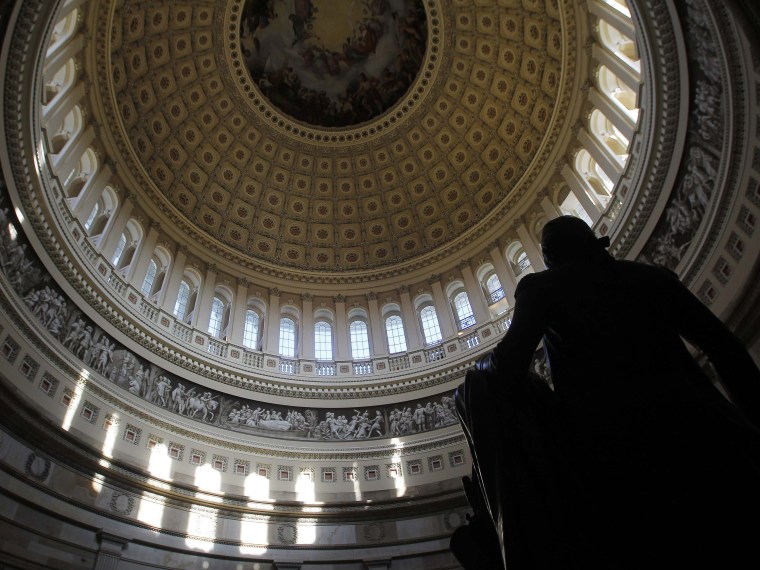In every Congress, the House majority leadership sets aside a specific bill number -- House Resolution 1 (or HR 1) -- for the party's top legislative priority. In the last Congress, for example, Republicans saved the designation for their regressive tax plan. In 2009, Democrats used HR 1 for their Recovery Act, which ended up rescuing the country from the Great Recession.
This year, HR 1 was reserved for something House Dems are calling the For the People Act, which is a sweeping political-reform initiative. The plan is a little tough to summarize in a sentence or two, but the legislation is intended to create significant ethics and lobbying reforms, end partisan gerrymandering, expand voting rights, and improve government transparency.
Or put another way, the top House Democratic priority for the next two years is to help bolster our democracy itself.
The first legislative hearing on the subject was held yesterday by the House Judiciary Committee, and as TPM's Tierney Sneed reported, the debate was ... lively.
Election law attorneys who often oppose each other in court had the opportunity Tuesday to spar from the same witness table.On one side were two members of President Trump's bogus voter fraud commission, which was disbanded under a bevy of lawsuits. On the other were voting rights advocates who have led legal challenges to restrictive election laws.
Lawmakers heard from Hans von Spakovsky, who's been credibly accused of being a voter-suppression pioneer, and who was invited by Republicans to testify. Predictably, he accused voting-rights advocates of making "wild" exaggerations about examples of disenfranchisement.
Vanita Gupta, who leads the Leadership Conference on Civil and Human Rights, reminded the committee, "It is important for members of Congress to understand that Mr. Hans von Spakovsky has made a career out of giving misleading testimony."
For Capitol Hill watchers, the spirited argument over one of the most fundamental issues undergirding our political system was encouraging, even if many of the far-right arguments and observations were absurd. It led a colleague of mine to ask a good question.
"I was wondering why I feel like it's been a while since I've seen or heard about actual contentious hearings on proposed legislation," Isaac-Davy Aronson asked, adding, "Is it true that it's been a while since we've had a real hearing like this?"
There's some subjectivity to this, but if yesterday felt a little different, there was a good reason for it.
Keep in mind, House Republicans held the majority for much of the decade, and in general, they were not overly eager to hold major hearings scrutinizing their legislative agenda. For one thing, they knew their ideas weren't especially popular, so detailed public hearings on controversial bills would've done more harm than good to their agenda.
What's more, let's also not forget that the contemporary Republican Party is a post-policy party, indifferent to the substance of governing. Policymakers who care about the real-world impact of their legislation necessarily care about congressional hearings, testimony from subject-matter experts, a deliberative process, etc.
In recent years, these were not top priorities for the GOP caucus.
Consider the two biggest legislative fights of the last Congress: the Republican health care gambit and the GOP's regressive tax cuts. Remember the exciting committee debates over the details of the proposals? Probably not -- since those debates never occurred. Republicans simply didn't see the point.
Yesterday's hearing on HR1 was, at varying times, contentious, exasperating, and encouraging. But just as importantly, it was an example of how the legislative process is supposed to work -- and how it didn't work when the GOP majority ran the chamber.
